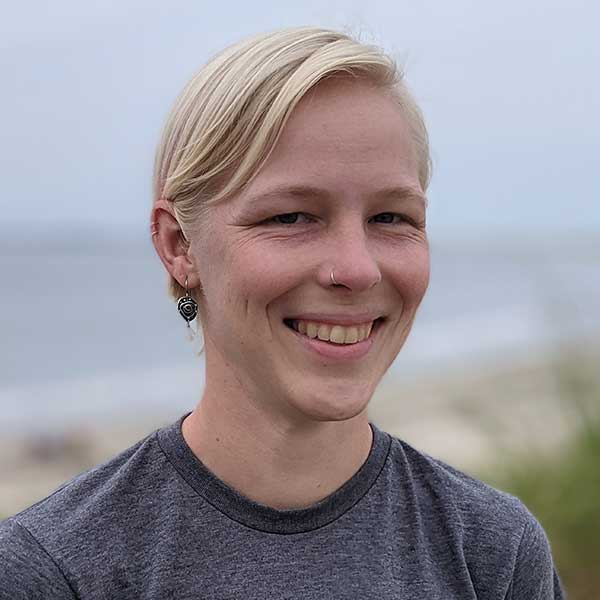- Clinical Assistant Professor; Director, New England Onsite Wastewater Training Program
- University of Rhode Island, Department of Natural Resources Science
- Phone: 401.874.5707
- Email: alibba@uri.edu
I care deeply about finding ways to help communities think about and plan holistically for a resilient future, especially in terms of protecting water quality, using the latest available science. My work focuses on understanding septic systems' impact on local waters, as well as their vulnerability to climate change. I hope to expand my work to include community engagement, where I wish to serve as a resource for end-users of septic systems, as well as folks planning for climate-change resilient communities, since septic systems are an often overlooked critical piece of our water treatment infrastructure.
I hope that my work can support the CI's mission to understand and explore the interrelationships among humans and water resources, here in RI. I am a new faculty member, and am looking forward to new collaborations and finding ways I can support or contribute to ongoing efforts to support local decision makers in making informed decisions that serve both the community and protect environmental health. With my Cooperative Extension appointment, I hope I can leverage some relationships with other programs here on Kingston campus to support the work others associated with the CI are doing, if that would be helpful.
I am interested in finding ways to help communities think about and plan holistically for a resilient future, especially in terms of leveraging the latest available science to protect water quality. My work focuses on understanding septic systems' (dis)function and their impact on local waters, as well as their vulnerability to climate change. One of my research collaboration centers on understanding how advanced septic systems perform in treating wastewater, and exploring alternative and cost-effective advanced water treatment options. I hope to inspire members of local communities to engage in long-term planning for climate-change resilient communities, including often overlooked critical pieces of our water treatment infrastructure, like septic systems.

